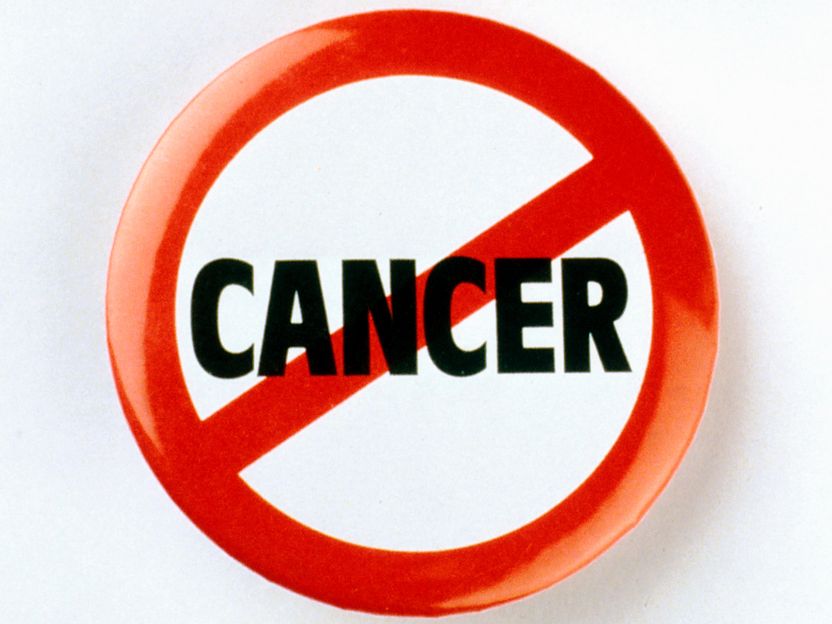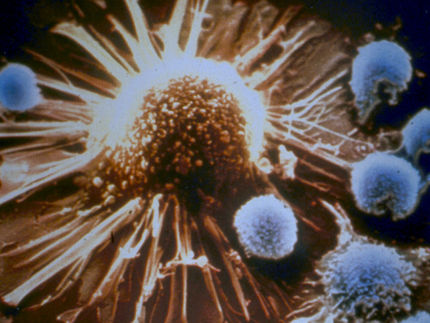Improve the tumor killing by T-cells and NK-cells
CatalYm raises EUR50 million to advance GDF-15 antibody into clinical trials for checkpoint-inhibitor refractory patients
CatalYm GmbH, a biopharmaceutical company developing novel cancer immunotherapies, announced the closing of its EUR50 million Series B financing round.

Symbolic image
Photo by National Cancer Institute on Unsplash
The financing was led by Vesalius Biocapital III and joined by Novartis Venture Fund (NVF), Wachstumsfonds Bayern, coparion and founding investors Forbion and BioGeneration Ventures. Representatives from Vesalius Biocapital III, NVF and Wachstumsfonds Bayern will join the Board.
CatalYm develops monoclonal antibodies that enhance the effective infiltration of immune cells into the microenvironment of cold tumors, addressing a high unmet medical need in immuno-oncology. CatalYm’s lead molecule CTL-002 was specifically designed to neutralize a tumor-produced protein called GDF-15. High concentrations of GDF-15 in the serum and tumor-microenvironment help the tumor to evade the immune system and are associated with resistance to current therapies. CTL-002 addresses three of the tumor’s immune suppressive mechanisms all involving the inhibitory effect of GDF-15 on the immunostimulatory LFA-1/ICAM-1 interaction. By neutralizing GDF-15, CTL-002 is expected to enhance infiltration of immune cells into the tumor, improve priming of T-cells by dendritic cells and improve the tumor killing by T-cells and NK-cells.
CatalYm has taken this antibody from academia to clinic in under three years. CTL-002 will be developed as a monotherapy and in combination with approved PD-1/PD-L1 antagonists in checkpoint-blocker refractory patients.
Dr. Manfred Ruediger, CEO of CatalYm stated, “This fundraising with the strong commitment of both our existing and new investors allows us to bring CTL-002 to clinical proof-of-concept and to establish that neutralizing GDF-15 is one of the key immune restorative mechanisms in a broad range of tumor types. CTL-002 is set to enter clinical development in December 2020.”
Marc Lohrmann, Managing Partner of Vesalius BioCapital III stated: “We are extremely pleased to join CatalYm in this Series B round and to help bring this new oncology treatment paradigm to patients in a first-in-human-study starting before year end 2020.”
Dr. Holger Reithinger, Chairman of CatalYm’s Supervisory Board and General Partner at Forbion stated: “This financing is a recognition of the progress achieved by Catalym’s team over the past four years. As founding investor, we welcome our new partners Vesalius BioCapital III, Novartis Venture Fund, Wachstumsfonds Bayern and coparion to join us in supporting the clinical development of CTL-002.”
Other news from the department business & finance
Most read news
More news from our other portals
Something is happening in the life science industry ...
This is what true pioneering spirit looks like: Plenty of innovative start-ups are bringing fresh ideas, lifeblood and entrepreneurial spirit to change tomorrow's world for the better. Immerse yourself in the world of these young companies and take the opportunity to get in touch with the founders.
See the theme worlds for related content
Topic world Antibodies
Antibodies are specialized molecules of our immune system that can specifically recognize and neutralize pathogens or foreign substances. Antibody research in biotech and pharma has recognized this natural defense potential and is working intensively to make it therapeutically useful. From monoclonal antibodies used against cancer or autoimmune diseases to antibody-drug conjugates that specifically transport drugs to disease cells - the possibilities are enormous

Topic world Antibodies
Antibodies are specialized molecules of our immune system that can specifically recognize and neutralize pathogens or foreign substances. Antibody research in biotech and pharma has recognized this natural defense potential and is working intensively to make it therapeutically useful. From monoclonal antibodies used against cancer or autoimmune diseases to antibody-drug conjugates that specifically transport drugs to disease cells - the possibilities are enormous

























































